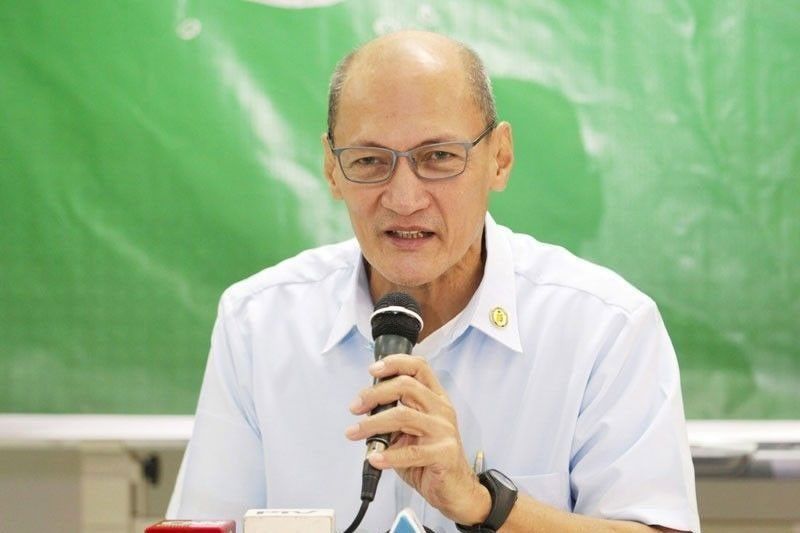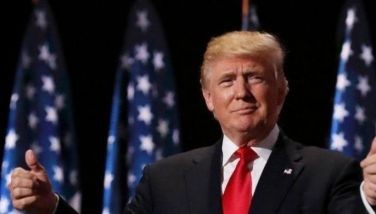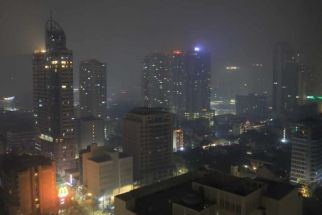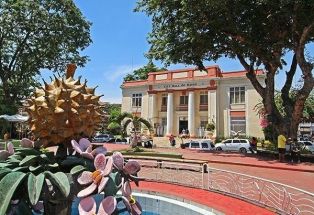PhilHealth chief told: Go on leave

Morales to undergo chemotherapy
MANILA, Philippines — After brushing aside calls for his resignation over corruption issues, Philippine Health Insurance Corp. (PhilHealth) president Ricardo Morales may have to take a leave of absence upon his doctor’s advice to undergo chemotherapy at a private hospital in Metro Manila.
The information regarding Morales’ medical condition was contained in a one-page medical certificate dated Aug. 7 submitted to the Senate committee of the whole constituted to look into alleged widespread corruption in PhilHealth.
The medical certificate cited Morales’ “diagnosed case of Diffuse Large B cell lymphoma.”
“He (Morales) is advised to complete six cycles of treatment during which he will be immunocompromised and vulnerable to opportunistic infections. It is therefore in his best interest that I have advised him to take a leave of absence,” read the certificate signed by Morales’ attending medical oncologist.
Morales “shall undergo a repeat PET CT (Positron Emission Tomography – Computed Tomography) Scan after completing six cycles of chemotherapy after which I shall make a recommendation when he can resume work,” his oncologist further wrote.
The doctor said the medical certificate, a copy of which was sent to the office of Senate President Vicente Sotto III, was issued upon Morales’ request.
Aside from Morales, PhilHealth executive vice president and chief operating officer Arnel de Jesus also told the Senate he would not be able to attend the next hearing of the chamber on Aug. 11 “due to an unforeseen medical emergency.”
“I deeply regret to inform you that I will not be able to attend the Senate hearing to discuss and tackle resolutions on the alleged rampant corruption, incompetence and inefficiency in PhilHealth amid the COVID-19 pandemic scheduled on Aug. 11 due to an unforeseen medical emergency,” De Jesus said in a letter also dated Aug. 7.
“Rest assured I will make myself available when my health permits. I respectfully ask that my privacy be respected during this time,” De Jesus said in a letter addressed to Sotto.
De Jesus attached to his letter a medical certificate indicating a diagnosis of acute coronary syndrome.
Sotto said he was not aware of Morales’ chemotherapy procedure until he received the letter. He also noted that Morales has yet to inform the committee if he would attend the scheduled hearing on Tuesday.
Morales’ loss
Sen. Panfilo Lacson said that while he understands the situation of Morales, his skipping the next hearing would be his “loss” as he would not be able to answer new allegations of resource persons.
“It’s their loss. As far as I know, resource persons will be revealing new information. We also have new documents, which are quite incriminating. So if they fail to attend the public hearing, it’s not the Senate’s loss. Although we can’t get their explanations, they would be at a disadvantage,” Lacson said over dwIZ.
Lacson said the Senate will not compel Morales to join the public hearing even via teleconferencing.
“We respect the doctor’s advice, especially in the case of Gen. Morales. It’s sad, it’s no joke, and we cannot blame him. He has a valid reason,” Lacson said in Filipino.
“I join his family in praying for his recovery. His health condition is no joke,” he added.
“In the case of SVP de Jesus, from what I’ve heard, he has long been using a pacemaker. But it’s only now that he is raising the matter. Many people have heart disease, diabetes,” he said.
“But we respect their doctors’ advice and we cannot doubt their integrity,” he added.
Morales’ absence will not affect the investigation of Task Force PhilHealth created on Friday on President Duterte’s orders.
Department of Justice (DOJ) spokesman Undersecretary Markk Perete gave the assurance in a radio interview, saying investigators will base their findings on documents and other pieces of evidence.
Task force head Justice Secretary Menardo Guevara also stressed Morales’ taking a leave of absence will “not at all” affect their investigation.
“We’ll convene next week and map out our overall strategy. I have one in mind already, but it’s premature to disclose,” Guevarra said.
Dense forest
“PhilHealth looks like a dense and formidable forest. The task force will exert all efforts to ensure that they will not be lost in the maze and produce something in the end,” Guevarra said.
He stressed they “prefer to work quietly and get the job done without fanfare.”
Meanwhile, the National Bureau of Investigation’s anti-graft division (NBI-AGD) has appealed to PhilHealth for full cooperation in its probe on ghost claims from the state insurer.
AGD division chair Catherine Camposano-Remigio said the NBI has so far summoned 13 healthcare institutions as part of its investigation into ghost claims involving patients who had died but continued to receive state insurance.
The scheme also involved patients receiving claims for grave illnesses like pneumonia even if they were only experiencing mild symptoms like cough, Camposano said.
She called the scheme “upcasing” of disease.
The NBI continued its investigation after two whistle-blowers from dialysis center WellMed blew the lid last year on claims for dead individuals.
PhilHealth has yet to submit claim documents and proof of payment to the 13 healthcare institutions being investigated, located mostly in Metro Manila, the NBI official said.
“PhilHealth has not been cooperative. Hopefully, with the directive of the President, things will change,” Remigio said.
President Duterte has ordered the DOJ to create a task force to investigate the anomalies in PhilHealth.
In an interview with ABS-CBN News, PhilHealth spokesperson Shirley Domingo denied the state insurer has not been cooperating with investigators, as she vowed to provide the NBI with documents requested.
The state insurer has been hounded with corruption allegations, the latest of which was laid out in the open by its former anti-fraud officer Thorrsson Montes Keith, who testified before the Senate about P15 billion in funds allegedly squandered by a “mafia” composed of members of the corporation’s executive committee.
Another whistle-blower, Alejandro Cabading, also blew the lid on an alleged P2.2-billion overpricing of information and communications technology equipment as well as overpriced COVID-19 test kits.
In the course of its probe, the NBI has filed graft charges before the DOJ against 21 PhilHealth officials, comprising the accreditation committee, for giving undue advantage to WellMed Dialysis Center in the processing of P1.8 million in claims from January to May 2019.
The NBI has also filed estafa charges against WellMed president Dr. Bryan Christopher Sy before a Quezon City court.
Not new to scandals
PhillHealth is no stranger to scandals. In mid-2007, PhilHealth was investigated by the Senate over unnecessary and overpriced medical procedures and surgeries performed on patients by its accredited doctors and hospitals.
Most of the surgeries involved cataract removal operations.
The state insurer, then under the Arroyo administration, was reportedly duped by P4 billion in padded claims since 1995.
One of the fraudulent claims was made by a doctor who performed over 2,000 cataract operations in one year worth P17 million.
The other questionable claims involved circumcisions and toenail extractions.
In 2012, or during the Aquino administration, a syndicate hacked into the system of PhiHealth and was able to get away with P114 million in premium payment of the employees of a business outsourcing company.
Reports had it that a company had issued checks to PhilHealth for the payment of the insurance premium of its employees. The payment was never remitted to the agency.
It was found that fake PhilHealth receipts were issued to the company, raising suspicion that insiders were involved in the anomaly.
The NBI and the Anti-Money Laundering Council launched an investigation into the scam.
In 2015, PhilHealth was once again rocked by anomalous claims for cataract surgeries amounting to P2 billion. The amount included some P325 million worth of questionable payments to two eye centers in Metro Manila.
It was the modus operandi of doctors and health facilities to seek out PhilHealth members. They would operate on them even if the procedures were actually not necessary and may even be harmful to the patients.
In 2017, a year after the Duterte administration assumed office, PhilHealth was again allegedly duped by some hospitals and doctors by reporting extended hospital stay of confined patients with community-acquired pneumonia, acute gastro-enteritis and urinary tract infection.
During that period, there was a minimum length-of-stay in hospitals before a patient can avail of insurance benefits from the agency.
Last year, PhilHealth was again investigated by the Senate for allegedly losing some P154 billion to “ghost dialysis” patients since 2013.
The agency’s case rate mechanism for cases was put into question, as it was believed to have allowed dialysis centers to overcharge. – Sheila Crisostomo, Marc Jayson Cayabyab, Robertzon Ramirez
- Latest
- Trending






























